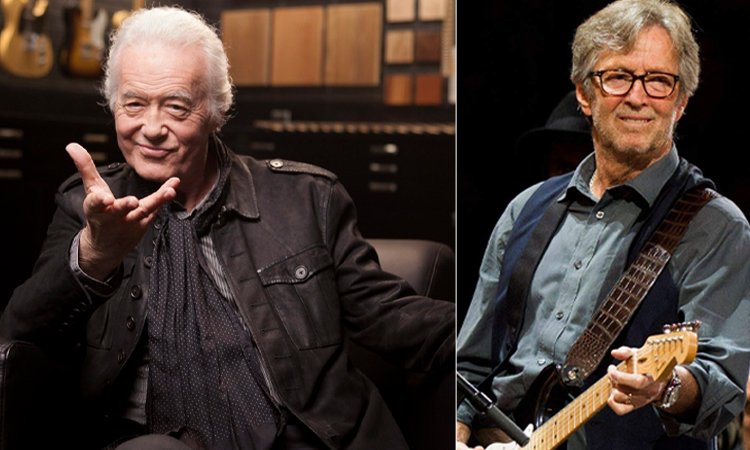In the vibrant music scene of the ‘Swinging Sixties’ in London, two guitar virtuosos, Eric Clapton and Jimmy Page, emerged as prominent figures. Their journey was a mix of friendship, rivalry, and a touch of betrayal, set against the backdrop of a musical era known for innovation and a close-knit community that propelled both musicians to fame in their distinctive ways.
Eric Clapton, having honed his skills with The Yardbirds, embarked on a musical odyssey by joining John Mayall & The Bluesbreakers in 1965. This was just the beginning, as he co-founded the psychedelic powerhouse Cream in 1966 alongside Jack Bruce and Ginger Baker. On the flip side of the coin, Jimmy Page, initially a sought-after session guitarist, found himself in The Yardbirds in 1966. Two years later, he formed Led Zeppelin, previously known as The New Yardbirds.
The connection between Clapton and Page extended beyond their shared experiences in The Yardbirds. When Clapton parted ways with the band, he recommended Jimmy Page as his successor. However, Page, content with his flourishing career as a session guitarist, suggested Jeff Beck for the role instead. Despite this twist, the two guitarists maintained a friendship, with Page affectionately describing their relationship as “arch-buddies.”
Page’s decision not to join The Yardbirds was rooted in a sense of respect for Clapton, considering the intricate internal politics surrounding his departure. While Clapton was with The Bluesbreakers, Page and Clapton continued their jam sessions on the side, recording blues standards with innovative distortion effects. However, these recordings later became a source of contention that strained their camaraderie.
During the same period, Page, producing a recording session for John Mayall & The Bluesbreakers, found himself in a dilemma. Andrew Loog Oldham, The Rolling Stones’ manager and owner of Immediate Records, insisted on acquiring the jam session tapes due to contractual obligations. Page protested, arguing that the recordings were variations of blues structures, but Oldham pushed forward.
The decision to release the tapes, featuring overdubs by three Rolling Stones members, including Mick Jagger, became a breaking point. Not only did it spark financial disputes, but it also shattered the trust between Page and Clapton. Biographer George Case notes that Clapton felt a sense of “mistrust” towards Page, marking the initiation of a feud.
Despite sporadic joint appearances, such as the 1983 Ronnie Lane benefit show, the true nature of their relationship remains ambiguous. Lingering bitterness from the contractual dispute and release of contested recordings has left an enduring stain on the friendship between these two guitar maestros.
The tale of Jimmy Page and Eric Clapton’s feud sheds light on the intricate dynamics of friendships in the tumultuous realm of the music industry, where artistic collaboration can give way to contractual disputes, leaving behind strained relationships and unanswered questions.
